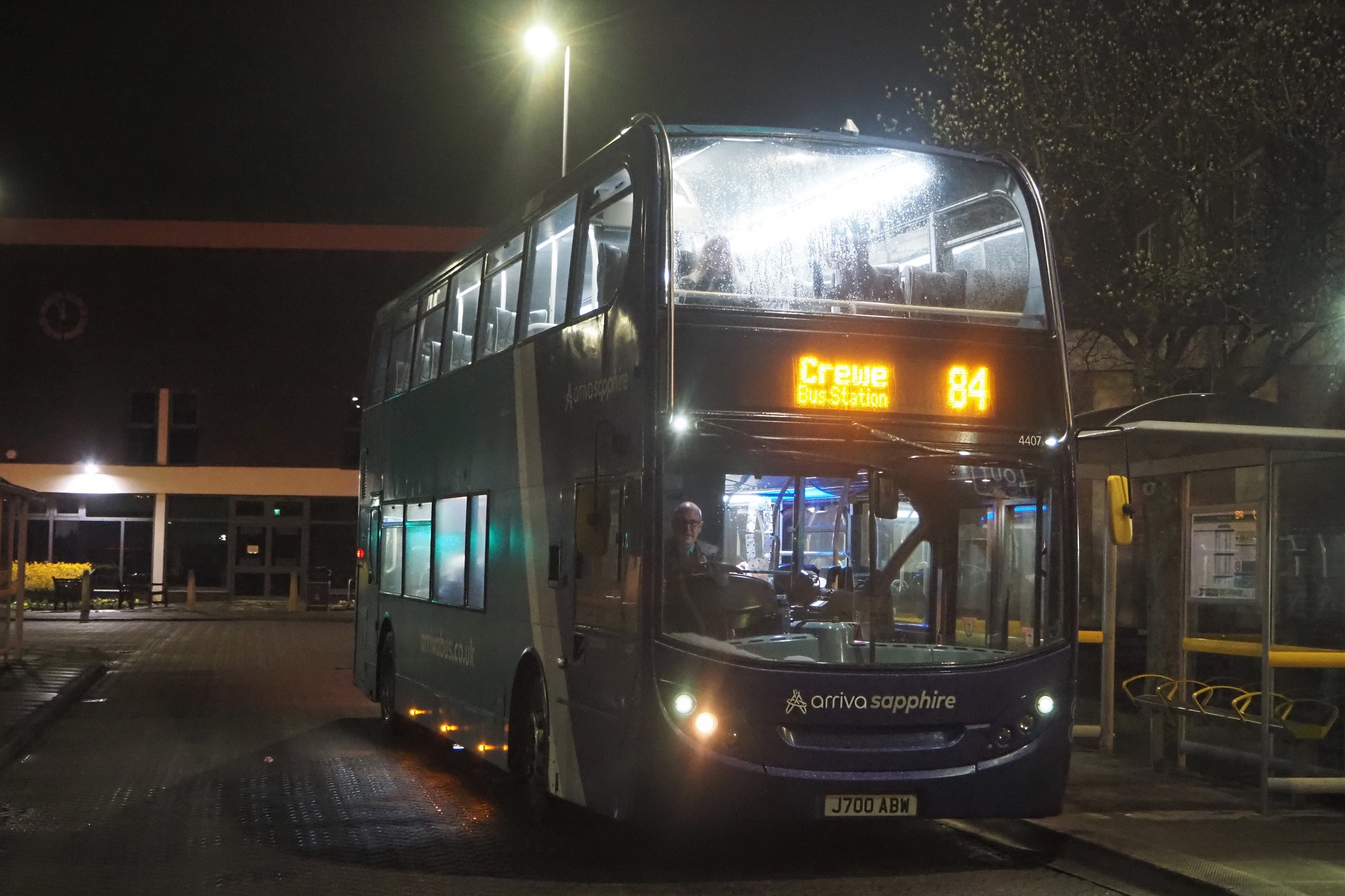It's really only an assumption on the basis of not being privy to the exact pay and conditions of Arriva vs D&G. It's really pretty much a given that pay and conditions will be less generous at a smaller operator. Do you really think that smaller operators would be able to operate the kinds of services that they often do, if they offered the same (or better) pay and conditions as the big groups? It's like chastising someone for "assuming" that a Premier League footballer will have better pay and conditions than a League 2 player. It's a given. It's only an assumption on the basis of not having it in black and white to quote.
I think there's lots of good reasons to think a smaller operator like D&G would have potentially smaller costs than Arriva, certainly in these marginal areas where Arriva's size and ready access to financing isn't a factor. The latter because Arriva clearly doesn't see the commercial benefit of investing in the business.
The basic employment costs would likely be the same, perhaps a little better for D&G whose drivers should be more committed and customer focused. Indeed, for smaller companies it's often easier to offer perks like private medical, not that either probably have it.
D&G are surely big enough to be in a position to achieve Arriva like savings in back office and operational matters through basic business tools, leaving only bulk fuel and capital costs being Arriva's solid advantage. Then again, these big legacy depots can be way more costly than the smaller facilities D&G can use, especially when being under-utilised and staffed by disinterested or even aggrieved staff.
It's certainly Arriva not D&G that suffers from having to fund dividends and unrealistic pay settlements. Even things like sourcing parts and basic engineering can be cheaper for D&G, given the size and lack of general commitment to the bottom line in a poorly performing Arriva outpost, where the effect on the business of everyone's working practices can feel remote if not entirely irrelevant. The intangibles (cooperation, commitment, goodwill) needed to run buses are certainly easier to foster in a smaller company.
Last but not least, is customer loyalty. I fondly remember a recent holiday run on a subsidied tiny D&G Solo serving as a community lifeline for a little picturesque village. The vehicle was well maintained, well presented and the driver friendly. Arriva wouldn't even bid for such tin pot business.
A day later, the experience of using an Arriva inter-urban route for more holiday making, despite its already pretty useless hourly headway, was predictably horrific. Horrible vehicles and even worse staff, whose unprofessionalism is astounding. Something you absolutely know cannot be improved with better pay because it's a question of basic character and work ethic, and was most likely a result of their absolute dominance of that area, the network being just a bit too large and spread out for an operator like D&G to comfortably take on, at least in one go. To fail to provide basic customer service to out of towers, even in a large bus station, is unforgivable.
With things like bustimes.org these days, there's little reason to prefer Arriva if you have a choice, and no real downside to venturing into an area whose buses are provided solely by independents like D&G. You even get the sense a D&G driver would be prepared to go the extra mile when traffic disruption threatens your plans, as it did on that second day. Arriva, not so much.
Other costs probably factor too. I now make it a rule to ensure Arriva pays every single refund I am entitled to, even if it feels a little absurd to be spending half an hour to claim back a few quid. I do this because thier staff are just such horrible selfish people, and in sufficient numbers that it can't be dismissed as the odd bad apple. I'd never even think of being so mean spirited to a smaller company like D&G.


